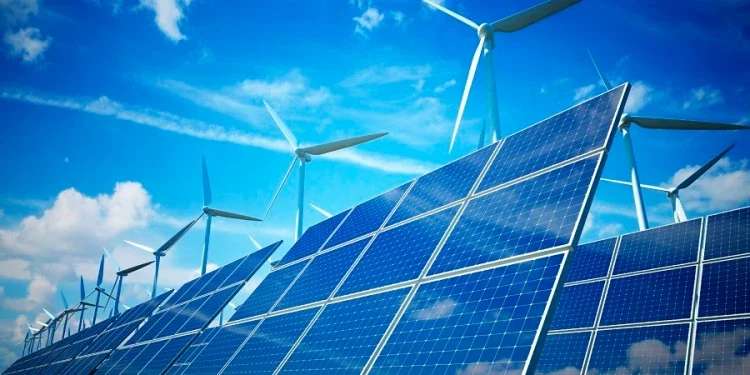Renewable Energy Now Economically Competitive – Ing. Kweku Wiafe
Ing. Kweku Wiafe of the Engineering Services Department of the Volta River Authority (VRA) has dismissed the notion that renewable energy should only be considered after other energy sources have been exhausted, asserting that renewables are now a cost-effective and viable component of Ghana’s power generation mix.
Speaking on the topic “Financing the Future: Tackling Legacy Debts and Building a Resilient Energy Economy” during a panel discussion at the 14th Ghana Economic Forum on Wednesday, October 29, 2025, Ing. Wiafe said renewable energy must be viewed as part of the country’s immediate energy solution rather than a long-term aspiration.
“There is this misconception that renewable energy is something you do after you have done everything else. The reality is that renewable energy should be part of the solution for Ghana today, especially if we want to build a resilient and cost-effective energy system,” he said.
Citing current production costs, Ing. Wiafe revealed that while simple cycle thermal plants, considered Ghana’s most efficient, generate power at about 11 cents per kilowatt hour, solar energy can now produce the same amount of power for less than 10 cents. “Renewable energy can stand on its own based on economic merit. Forget about the sustainability argument, today, the economics of renewable energy is compelling,” he emphasised.
He pointed to industrial powerhouses such as China and India, which have integrated renewable energy into their industrial growth strategies while maintaining lower generation costs. “If China and India, both industrial economies, are producing power at a third of Ghana’s cost using renewable energy, then it is clear that renewables and industrialisation are not mutually exclusive,” he stated.
Turning to inefficiencies within Ghana’s generation segment, Ing. Wiafe noted that nearly 40 percent of the country’s thermal generation remains inefficient, largely due to emergency-driven procurement decisions in the past. “During power crises, we procured technology based on urgency, not efficiency. Once the crisis ended, we failed to invest in upgrading those plants,” he lamented.
According to him, recent studies by the VRA indicate that replacing inefficient thermal technologies could save the country over $300,000 daily in fuel and operational costs.
“The only way you can reduce prices is to reduce cost. Unfortunately, we’ve relied too much on revenue measures that simply don’t work,” he noted, referencing Ghana’s frequent tariff adjustments.
He highlighted that average electricity tariffs in Ghana currently stand around $0.20–$0.26 per kilowatt hour, compared to a global average of $0.17 and a third of that in countries like China and India. “We cannot keep increasing tariffs as a way to solve the sector’s problems that only kills the goose that lays the golden egg,” he warned.
Ing. Wiafe therefore urged policymakers to prioritise efficiency improvements and cost reduction over recurrent tariff hikes, emphasising that the sector’s long-term sustainability depends on tackling inefficiencies, diversifying energy sources, and embracing renewables as a core economic solution rather than a developmental ideal.








